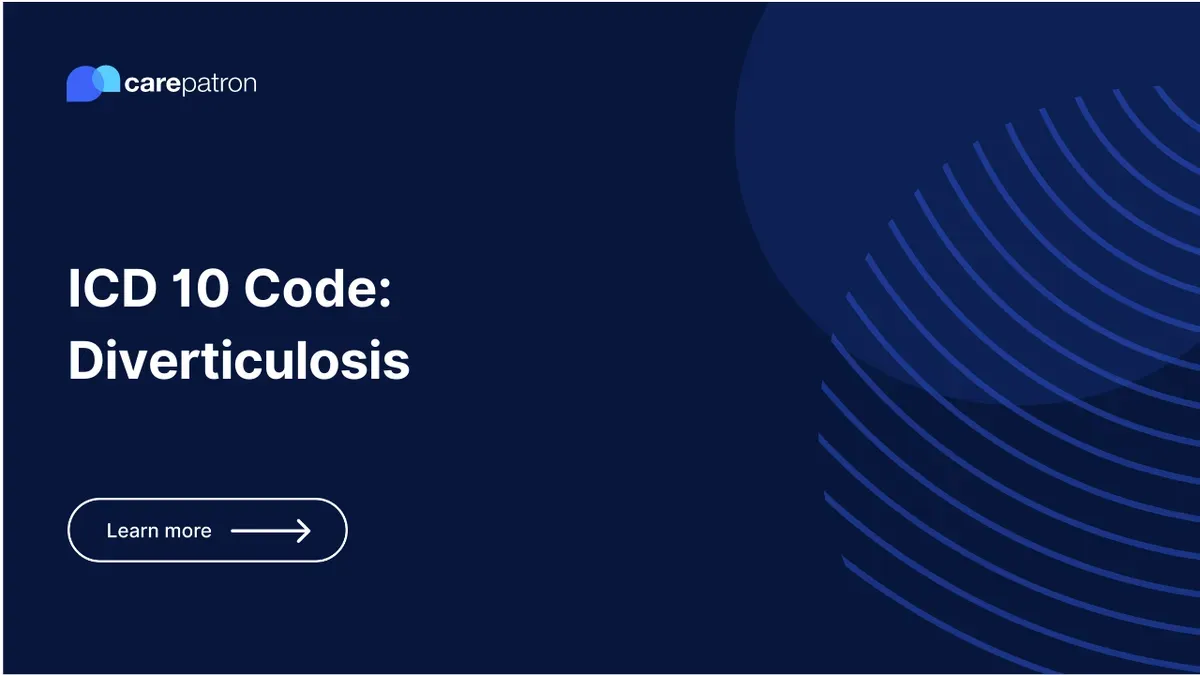
Diverticulosis ICD-10-CM Codes | 2023
Discover the essential Diverticulosis ICD-10-CM codes. Accurate classification for diagnosis and billing. Streamline healthcare processes now.
Use Code
Commonly asked questions
Diagnosis is typically made through a combination of medical history evaluation, physical examination, imaging tests (such as CT scan or colonoscopy), and ruling out other potential causes of symptoms.
While the exact prevention methods are not well established, adopting a high-fiber diet, maintaining a healthy weight, staying physically active, and avoiding smoking may help reduce the risk of developing diverticulosis.
Treatment for uncomplicated diverticulosis usually involves lifestyle modifications such as increasing dietary fiber intake, hydration, and regular exercise. Medications may be used to manage symptoms. In cases of complications or diverticulitis, antibiotics and, in severe cases, surgical intervention may be necessary.
EHR and practice management software
Get started for free
*No credit card required
Free
$0/usd
Unlimited clients
Telehealth
1GB of storage
Client portal text
Automated billing and online payments
